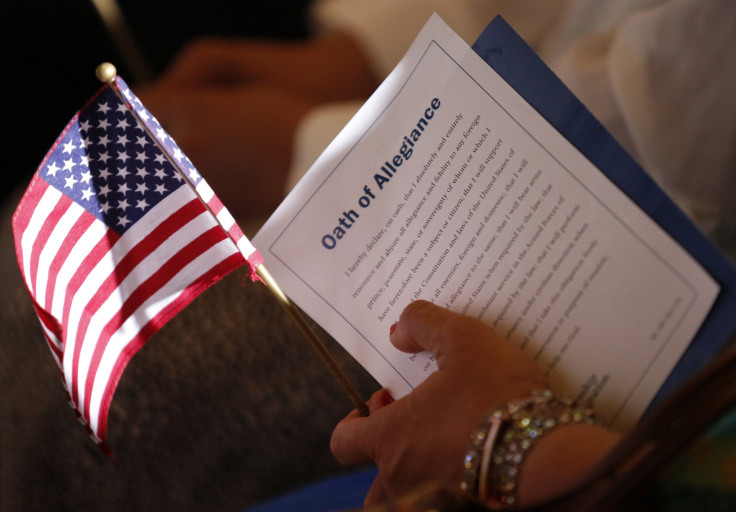Oath Of Allegiance Changed: Pledge To Military Service No Longer Required For Naturalized Citizens

Naturalized citizens will no longer have to pledge to defend the United States through military service when reciting the Oath of Allegiance if they have certain religious or conscientious objections, according to a new policy set out by U.S. Citizenship and Immigration Services. The rules, which were introduced this week, have already caused concern among prominent politicians.
“I think the president needs to fire the director immediately. I think Congress needs to pass a law to stop them from changing the oath,” Louisiana Gov. Bobby Jindal, a Republican presidential candidate, told Breitbart News on Wednesday. “Let’s be honest here, immigration without assimilation is invasion. We’ve always said the people coming here have to want to be Americans, otherwise why are they coming here in the first place?”
Likewise, U.S. Sen. Tom Cotton, R-Ark., in a statement on his official website, said the new rules would undermine the citizenship process.
The Obama Administration’s announced changes to the Oath of Allegiance undermines what it means to be a U.S. citizen. http://t.co/kcKeyy3DOC
— Tom Cotton (@SenTomCotton) July 22, 2015Under the clarified guidelines that took effect Tuesday, certain immigrant candidates for citizenship will not be required to declare they will “bear arms on behalf of the United States” and “perform noncombatant service in the Armed Forces of the United States,” depending on the person's personal beliefs.
Here are guidelines for possible exemption from military service:
-- May be eligible for modifications based on religious training and belief, or conscientious objection arising from a deeply held moral or ethical code.
-- Is not required to belong to a specific church or religion, follow a particular theology or belief, or to have had religious training in order to qualify.
-- May submit, but is not required to provide, an attestation from a religious or other type of organization, as well as other evidence to establish eligibility.
© Copyright IBTimes 2025. All rights reserved.






















